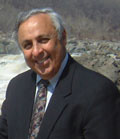|
 There
is a popular series of books in the U.S. that all start with: “The
Complete Idiot’s Guide to…” I counted 765 books advertised with
subjects including “The Internet”, “The Kama Sutra” and “The
Bible”. Who would buy a book with such an insulting title? There
is a popular series of books in the U.S. that all start with: “The
Complete Idiot’s Guide to…” I counted 765 books advertised with
subjects including “The Internet”, “The Kama Sutra” and “The
Bible”. Who would buy a book with such an insulting title?
The answer is: any of us who, with a smile, can admit that we are
overwhelmed with acronyms, jargon and convoluted language, and yearn for
simplicity.
In
this series of columns, I hope to discuss basic FDA requirements for
medical devices. Medisourceasia has a broad audience
with different levels of understanding of FDA requirements. So, please
forgive me when I discuss material you already know. On the other hand,
there may be subjects that you do not understand and possibly some even no
one really understands. Laws and regulations are written by a
complex process involving lawyers, politicians, consumers, physicians and
scientists. I learned that sometimes logic does not always seem to
play a role. When I first started my career, I challenged a
lawyer at a committee meeting. I sheepishly raised my hand and said:
“But, that contradicts what you just said a moment ago”. He
roared like a lion and said: “Lawyers are not bound by logic and
reasoning-that’s for scientists!” I told that story when I tried
to explain U.S. law at meetings with Ministry of Health officials in
Beijing, Bangkok and Singapore. Then, I explained how water is
regulated in the U.S. as a cosmetic ingredient if it you claim it is used
to clean your skin, but is regulated as a pharmaceutical if you claim it
removes wrinkles. In the United States, a product is regulated by
what it claims on its labeling rather than just its composition.
A
question for you: Can water also be regulated as a medical device?
Let’s look at the definition: A device is "an instrument,
apparatus, implement, machine, contrivance, implant, in
vitro reagent, or other similar or related article, including a
component part, or accessory which is:
-
recognized
in the official National Formulary, or the United States
Pharmacopoeia, or any supplement to them,
-
intended
for use in the diagnosis of disease or other conditions, or in the
cure, mitigation, treatment, or prevention of disease, in man or other
animals, or
-
intended
to affect the structure or any function of the body of man or other
animals, and which does not achieve any of it's primary intended
purposes through chemical action within or on the body of man or other
animals and which is not dependent upon being metabolized for the
achievement of any of its primary intended purposes."
Look
at the underlined section. The answer is that water is not regulated as a
medical device if its primary intended use is achieved through chemical
action within or on the body. Water could, I suppose, be an in
vitro reagent, according to this definition, if it claimed use, for
example, to diagnose a disease by being used on a blood sample. “In
vitro” is Latin for, “within a glass”, i.e. in a test-tube.
If
I discuss material for which you still have questions, write to me at
yourFDAconsultant@medisourceasia.com
and I will try to answer you. This column is for you and I welcome
your suggestions on how to improve it.
Dr. Norman F. Estrin
June
22, 2002
|
|
|
|
If you have
questions related to the contents of this column, please
write to Dr Norman Estrin at yourFDAconsultant@medisourceasia.com
and he will try to answer you. This column is for you
and we welcome your suggestions on how to improve it.
|
|
Dr. Norman Estrin
is a
recognized authority in the medical device and cosmetic
industries. He has had over 30 years of experience in
directing scientific and technical and regulatory programs
in these industries. He is Regulatory Affairs
Certified (“RAC”) by the Regulatory Affairs Professional
Society. Dr. Estrin is the founder of ESTRIN CONSULTING
GROUP, INC. (ECG). ECG offers cost-effective,
experienced consulting to medical device firms on FDA-
related issues. Its Services include preparing 510(k)
and other FDA submissions, regulatory strategy development
and acting as agent and official correspondent for non-U.S.
medical device companies.
|
|
For more information, contact him
at
yourFDAconsultant@medisourceasia.com
or visit his website: http://www.yourFDAconsultant.com
|
|
|